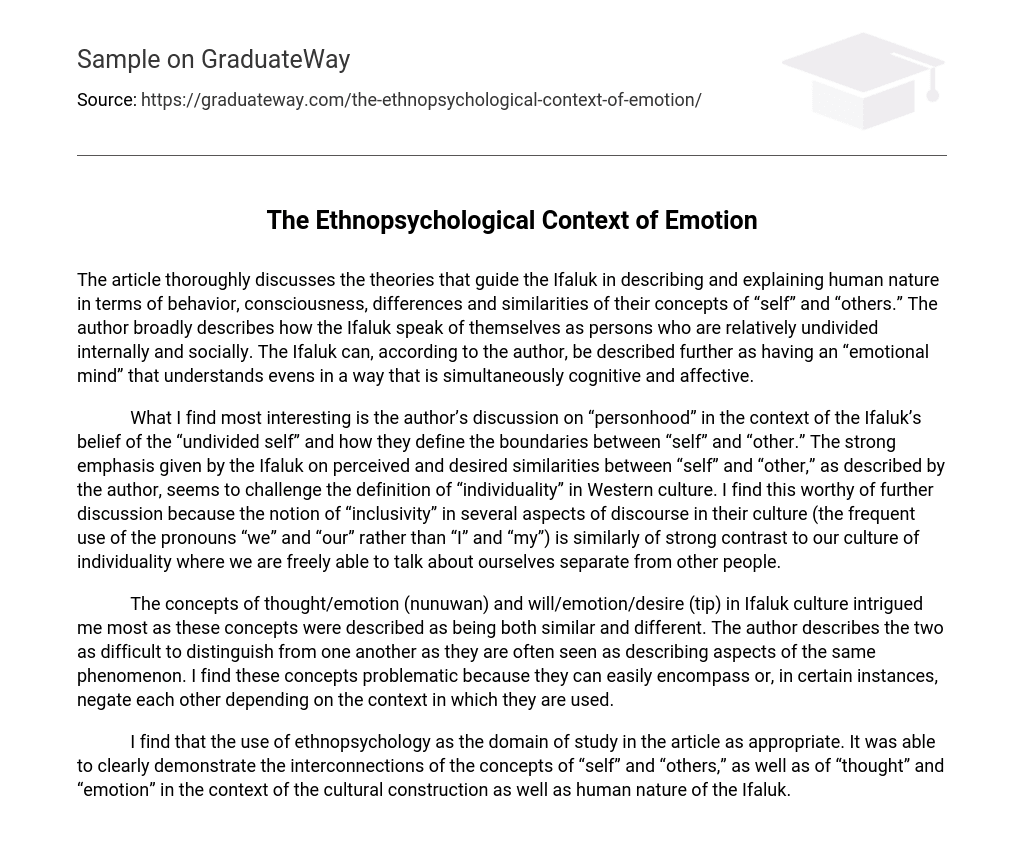The article thoroughly discusses the theories that guide the Ifaluk in describing and explaining human nature in terms of behavior, consciousness, differences and similarities of their concepts of “self” and “others.” The author broadly describes how the Ifaluk speak of themselves as persons who are relatively undivided internally and socially. The Ifaluk can, according to the author, be described further as having an “emotional mind” that understands evens in a way that is simultaneously cognitive and affective.
What I find most interesting is the author’s discussion on “personhood” in the context of the Ifaluk’s belief of the “undivided self” and how they define the boundaries between “self” and “other.” The strong emphasis given by the Ifaluk on perceived and desired similarities between “self” and “other,” as described by the author, seems to challenge the definition of “individuality” in Western culture. I find this worthy of further discussion because the notion of “inclusivity” in several aspects of discourse in their culture (the frequent use of the pronouns “we” and “our” rather than “I” and “my”) is similarly of strong contrast to our culture of individuality where we are freely able to talk about ourselves separate from other people.
The concepts of thought/emotion (nunuwan) and will/emotion/desire (tip) in Ifaluk culture intrigued me most as these concepts were described as being both similar and different. The author describes the two as difficult to distinguish from one another as they are often seen as describing aspects of the same phenomenon. I find these concepts problematic because they can easily encompass or, in certain instances, negate each other depending on the context in which they are used.
I find that the use of ethnopsychology as the domain of study in the article as appropriate. It was able to clearly demonstrate the interconnections of the concepts of “self” and “others,” as well as of “thought” and “emotion” in the context of the cultural construction as well as human nature of the Ifaluk.





